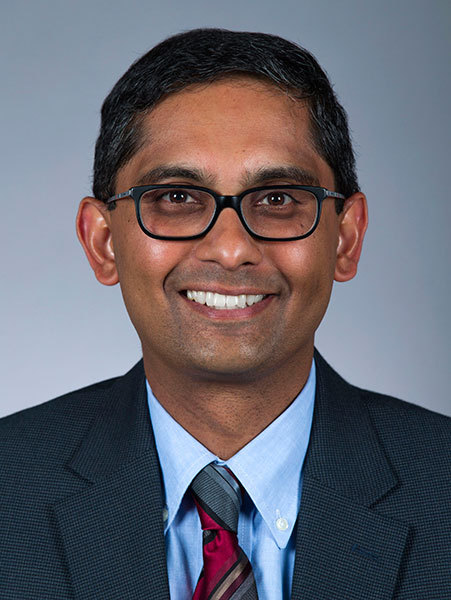AMES, Iowa – It’s no longer enough for scientists and engineers to communicate their work by publishing in technical journals, says an associate dean for Iowa State University’s College of Engineering.
Today’s scientists and engineers need to communicate the potential impacts of their work to the public, said Sriram Sundararajan, Iowa State engineering’s associate dean for academic affairs and a professor of mechanical engineering. They also need to find ways to use their expertise to advance societal goals such as developing a stronger workforce in technical fields.
Sundararajan will present his ideas during a seminar at the annual meeting of the American Association for the Advancement of Science (AAAS) Feb. 16-20 in Boston. The theme of the meeting is “Serving Society Through Science Policy.”
Sundararajan will be one of three speakers for a seminar called, “Scientist Motivations, Support and Challenges for Public Engagement.” The seminar will be 11 a.m. to 12:30 p.m. Thursday, Feb. 16, in Ballroom A of Boston’s Hynes Convention Center.
Sundararajan will explain how Iowa State is working to help researchers succeed in broader impacts activities, including public engagement.
“Being able to communicate effectively to multiple audiences is important to scientists and engineers,” Sundararajan said. “And so we want to help faculty and graduate students develop a broader impacts portfolio.”
An individual’s portfolio could include outreach to high school students, communicating the value of campus research, mentoring young engineers or nurturing diversity in technical fields.
Iowa State has several programs devoted to helping faculty and graduate students develop ideas and programs for engaging the public. Here are two examples, both supported by the National Science Foundation:
- Iowa State’s Strengthening the Professoriate initiative provides resources and support for faculty members, postdoctoral research associates and advanced graduate students who are developing broader impacts programs for their grant proposals and research projects. The initiative offers events, programs, resources and consulting to help researchers develop effective engagement activities.
- Iowa State offers a graduate course to engineering students that’s taught by Sundararajan and is designed to help students apply their technical work to benefit society. As part of the course, students design a broader impacts project. One student, for example, developed LEGO-based activities to help high school students learn about industrial engineering.
Describing those and other Iowa State programs will help Sundararajan deliver his main point to the seminar audience:
“You need to encourage individual faculty and graduate students to develop broader impacts and public engagement,” he said. “You need to develop a structure to provide them with the tools they need to be successful.”
In addition to Sundararajan, the seminar will feature talks by Tracey Holloway, a professor of civil and environmental engineering at the University of Wisconsin-Madison; and Ezra Markowitz, an assistant professor of environmental conservation at the University of Massachusetts Amherst.
More information about the seminar is here.
The AAAS was founded in 1848 and is the world’s largest general scientific society. The association publishes the journal Science and several other scientific journals.

